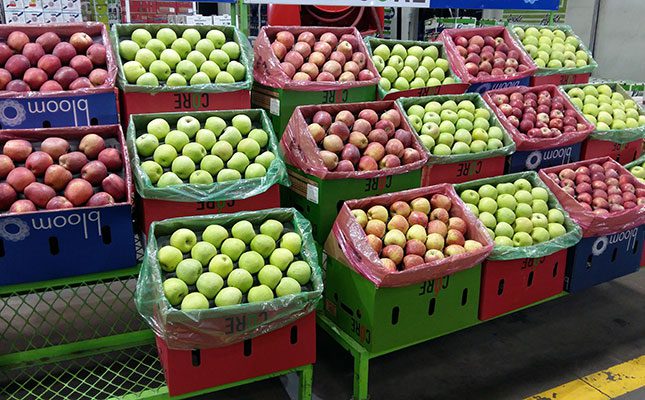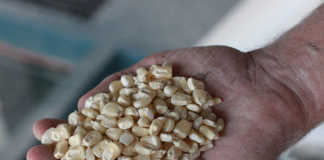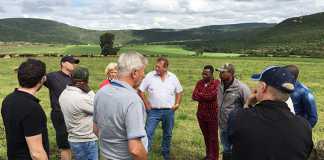
Photo: FW Archive
Doris Tshepe, commissioner of the CompCom, said during a press briefing that the inquiry would start on 31 March and would be finalised within 18 months.
The inquiry would focus specifically on apples, citrus, bananas, pears, table grapes, potatoes, onions, carrots, cabbage, tomatoes and spinach, which accounted for 70% of fresh produce production and sales throughout South Africa.
READ Correct fresh produce packaging could aid growth
Tshepe said the inquiry was initiated in response to complaints about anticompetitive conduct in the fresh produce value chain, high levels of concentration in the agriculture sector, and food price studies that found alarming levels of price increases and volatility in the pricing of various food products.
Hardin Ratshisusu, deputy commissioner of the CompCom, who would chair the inquiry, said the process would evaluate the efficiency of the value chain by looking at national fresh produce markets as a route to market for farmers, as well as direct contracting between farmers and retailers, wholesalers and processors.
In terms of the fresh produce markets, the inquiry would focus on access, the role of market agents, costs associated with selling through these platforms, the price discovery process, and barriers to entry, while the basic conditions of entry into various contracting arrangements, price determination and costs associated with contractual arrangements would be the focus when it came to direct contracting.
READ Are national fresh produce markets coming to an end?
The inquiry would also evaluate market dynamics of key inputs and their impact on producers, with questions emanating from observation about input markets, where the majority of inputs were imported from, and structural concerns based on the concentrated nature of the industry.
Lastly, the inquiry would look at barriers of entry facing small and medium enterprises when it came to access to markets, inputs and financing.
Stakeholders could participate in the inquiry by responding to the statement of issues, participating in public hearings (online or on site), and by making written submissions to the Fresh Produce Market Inquiry. The public hearings would be held in Limpopo, Mpumalanga, Free State, Western Cape and Gauteng.
“All affected stakeholders, including those that will receive specific separate questions, are required to respond to the statement of issues. The success of this inquiry depends on the participation and full co-operation of stakeholders,” Ratshisusu said.
Francois Knowles, registrar of the Agricultural Produce Agents’ Council (APAC), said that APAC had been working with the CompCom since last year when it indicated that it would like to launch an inquiry into fresh produce markets.
“APAC will help the commission, as far as possible, to understand the price discovery mechanism and to gather accurate information about the value chain. We hope that insights from the inquiry will help to identify ways in which we can improve efficiencies at the market as well as ethical trade,” Knowles said.
He added that farmers did not have to be afraid of the inquiry, as this was not a ‘witch hunt’, but rather a general inquiry aimed at creating a better understanding of the working of the market.
Christo van der Rheede, CEO of Agri SA, said that the general feeling among farmers about the inquiry was that they did not have anything to hide. “It is important to understand that a lot of the consolidation that occur in the agriculture sector is because of external factors that are out of stakeholders’ control.”
He hoped the inquiry would help to improve transparency and market access.












